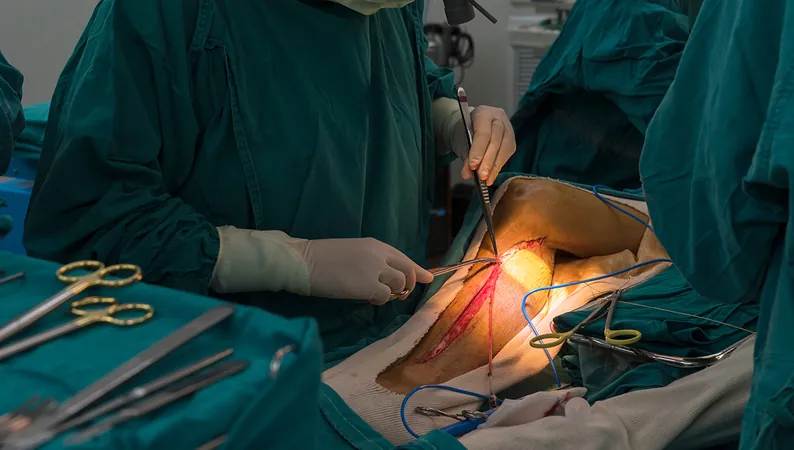
Irregular Sleep: The Surprising Culprit Behind Premature Muscle Aging!
2025-05-18
Author: Ming
Could Your Sleep Habits Be Aging Your Muscles Faster?
What if I told you that the time you go to bed could dramatically affect your muscles? New groundbreaking research suggests that disruptions in our sleep patterns may lead to premature muscle aging, changing the way we view our nightly routines.
The Science Behind Sleep and Muscle Health
Led by Dr. Jeffrey Kelu from King’s College London, researchers have discovered a fascinating connection between our circadian rhythms—our internal body clocks—and muscle health. It turns out that our muscles have their own internal clocks that, when thrown off, can accelerate aging, commonly referred to as sarcopenia.
The Experiment: Zebrafish and Muscle Aging
To investigate this phenomenon, scientists conducted a two-year study on zebrafish, chosen for their transparent bodies that make it easy to observe muscle changes. While younger fish showed no significant aging signs, those with disrupted muscle clocks exhibited clear indications of premature muscle deterioration.
Why Zebrafish?
Zebrafish are not just convenient; their muscle structure and cellular processes are strikingly similar to humans, making them a vital model for such studies. With their rapid reproduction and transparent nature, researchers can quickly observe the long-term effects of aging.
Wake-Up Call for Shift Workers!
With about four million shift workers in the UK alone, this research serves as a critical reminder. It shows how disrupted circadian rhythms due to erratic sleep schedules can compromise overall health, exacerbating muscle decline and increasing the risk of mobility issues.
What It Means for You
These findings extend beyond night-shift workers. Anyone with irregular sleep patterns, like frequent travelers or night owls, may also suffer similar consequences. Over time, these disruptions can silently derail muscle maintenance, raising the question: how well can our bodies recover when our sleep keeps changing?
Gender Differences in Muscle Aging
Interestingly, early observations suggest that men may experience sharper declines in muscle strength as they age compared to women, which aligns with findings in the zebrafish. This may be due to how circadian rhythms intersect with hormonal and metabolic changes throughout life.
Sleep: The Secret to Muscle Recovery?
Healthy muscles go through a nightly cleanup cycle where faulty proteins are removed. Disruption in circadian rhythms hampers this process, allowing damage to accumulate and weaken muscle tissue over time.
Revolutionary Treatment Possibilities!
Exciting advancements are on the horizon! Early research is underway to develop treatments targeting proteins related to our internal clocks, which play a crucial role in nighttime muscle recovery. If successful, these therapies could revolutionize how we prevent muscle loss, particularly for those in high-risk categories.
The Future of Muscle Health: Timing Is Everything!
With growing interest in chronomedicine, therapies may be tailored to align with our natural rhythms for optimal results. This could mean administering medications or scheduling physical therapy at specific times to enhance muscle health.
As we continue to unravel the mysteries of how sleep affects our bodies, one thing is clear: keeping a regular sleep schedule may be one of the easiest ways to ensure our muscles stay young and strong.




 Brasil (PT)
Brasil (PT)
 Canada (EN)
Canada (EN)
 Chile (ES)
Chile (ES)
 Česko (CS)
Česko (CS)
 대한민국 (KO)
대한민국 (KO)
 España (ES)
España (ES)
 France (FR)
France (FR)
 Hong Kong (EN)
Hong Kong (EN)
 Italia (IT)
Italia (IT)
 日本 (JA)
日本 (JA)
 Magyarország (HU)
Magyarország (HU)
 Norge (NO)
Norge (NO)
 Polska (PL)
Polska (PL)
 Schweiz (DE)
Schweiz (DE)
 Singapore (EN)
Singapore (EN)
 Sverige (SV)
Sverige (SV)
 Suomi (FI)
Suomi (FI)
 Türkiye (TR)
Türkiye (TR)
 الإمارات العربية المتحدة (AR)
الإمارات العربية المتحدة (AR)